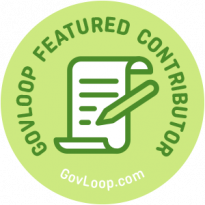Think of all the things in one’s life that require practice of some kind or another to advance in competency.
Now think of all of the things that require little to no practice to achieve competency, even mastery. Which is the longer list?

Of course, it’s the former.
Because only a tiny percentage of us are born a Wolfgang Amadeus Mozart.
The rest of us have to work for it.
In my years as an in-the-trenches recruiter and career coach/interview prepper, and crossing paths with thousands of professionals of every occupational stripe, I found that over 95% of job seekers take no time to actually practice interviewing.
I deduced that the predominant thought among these professionals was: “I’ve interviewed and won jobs in the past, why do I need to practice?“
And therein lies the heart of the matter. The busy professional cannot justify the time expenditure, so they rationalize that they don’t need to practice anyway, given past job search experiences.
The result? Very few professionals master interviewing skills. Some may be exceptional, many competent. But few are aces.
And if memory serves, an ace beats any other card in the deck, mono-a-mono.
Think of the premier people in any profession, in any endeavor:
- Yo Yo Ma: Arguably the greatest cellist in the world — practices almost every day.
- LeBron James: Is in the gym before anyone else, almost every day, practicing.
And the list goes on and on.
- Practicing builds muscle memory.
- Practicing builds competency.
- Practicing builds champions.
Daily Practice
When in a full-throttle job search, commit to spending at least 30 minutes per day, at least five days per week, running through this daily routine:
- Print out a list of interview questions (see the bottom of this article for three sets of examples).
- Stand in front of a full-length mirror.
- Read 10 questions, one after the other, aloud. Then read them again.
- Then read the first question, looking down at the printout in front of you.
- Then, looking in the mirror, answer the question.
- Moving on to question #2, repeat.
- Question three, repeat…
- Repeat until question #10…
Weekly Practice
When in a full-throttle job search, commit to spending at least 15 minutes per day, at least three days per week, running through this routine:
- Go to your ChatGPT account (if you are not now learning about and embracing AI, start).
- Prompt it with something like this: “Think like a seasoned hiring manager/interviewer: List five interview questions to ask a candidate for a recruiter role at a Fortune 50 company.” (Change out “recruiter” for the job titles you are targeting.)
- Practice with the list of generated questions: Read the first question. Think about it. Write a three-sentence answer.
- Read the second question. Think about it. Write a three-sentence answer.
- Keep repeating until the fifth question. And remember to keep this exercise to 15 minutes, tops.
- Every two sessions, change the specific prompt that you use in ChatGPT so that it varies the question sets.
Your “Elevator Pitch”
Also called your “30-second commercial,” it’s your time in an interview to truly shine.
Craft a compelling pitch to make to your interviewers. Then write it down. Review it. Revise it. Review it. Revise it. Polish it and make it superior.
Make it a killer marketing document that champions the awesomeness that is you. Then read it. And read it again. And memorize it.
Doing this will prepare you to answer the most common — and arguably toughest and most feared — interview question of all: “Tell me about yourself.” The best answer is akin to a commercial for a great new product or an exciting teaser/trailer for a new movie.
For a helpful resource on elevator pitches, visit here.
Practice Interview Question Sets
Below are practice interview questions (and answers) from three leading resources.
For seven tips to help you perform well in an interview, read Part 1 of this blog series, “Job Interviews, Part I of II — The Mini-Guide to Interviewing Successfully.”
Jerry Cooney, “Jer” to his friends, has spent his career serving in various capacities within Human Resources and Talent Acquisition. He holds a Bachelor’s degree in HR from Cornell and is a Senior Certified Professional in HR (SHRM-SCP) and a Certified Professional Resume Writer (CPRW). He began his career at a small firm in Manhattan and has since gone on to work with such famous names as Amazon, Siemens, General Electric, and Amtrak. Jer is originally from Islip, New York, but now calls Philadelphia home. He is a huge baseball fan.





Leave a Reply
You must be logged in to post a comment.